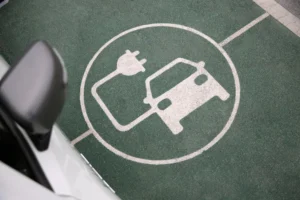A Complete Guide to Homeowners Insurance Essentials
Purchasing homeowners insurance is a crucial decision, serving not only legal needs but also offering you additional protection in your everyday life.
Homeowners insurance serves as an essential safeguard, providing peace of mind and security for your living space.
Besides being a prerequisite for mortgage loans, this insurance offers substantial protection from life’s unforeseen occurrences.

In the following sections, we delve into this type of insurance, guiding homeowners to make educated choices while ensuring their properties are adequately covered.
What is homeowners insurance?
Homeowners insurance forms a protective agreement covering property damage, personal possessions, and liabilities tied to your home.
This insurance encompasses various coverage types, including protection against structural damage from natural disasters, theft, and liability for accidents occurring on the premises.
Typically, this insurance is mandated for homes purchased with a mortgage, as lenders seek to safeguard their financial interests throughout the loan’s duration.
The Most Common Types of Coverage
- Dwelling Coverage: Safeguards the home from damage due to events like fires, storms, and other perils specified in the policy.
- Personal Property: Provides reimbursement or replacement for personal items such as furniture and clothing if they’re stolen or damaged.
- Liability Coverage: Covers legal and medical costs if someone gets injured on your property and you are deemed liable.
- Additional Living Expenses (ALE): Assists with temporary living expenses if your home is unlivable due to a covered incident.
- Other Structures: Covers detached structures like garages, fences, and sheds on your property.
Covered Events and Common Exclusions
While coverage is generally broad, it doesn’t include every possible type of damage.
Natural disasters such as earthquakes and floods, along with general wear and tear, are frequently excluded. Additional coverage may be needed for these events.
If you’re in a hurricane-prone area, it’s vital to check if your policy includes wind damage or if additional coverage is necessary.
How Much Does Homeowners Insurance Cost?
The price of homeowners insurance varies based on factors like location, property value, coverage amount, deductible, and the homeowner’s claims history.
In the United States, the typical yearly expense is around $1,400, although this can differ greatly. Properties in areas prone to risks, like coastal regions, usually have higher insurance rates.
Choosing the Right Policy
- Evaluate Local Hazards: Identify prevalent risks in your locality, such as storms or earthquakes, to establish necessary coverages.
- Determine Coverage Levels: Ensure the policy limit is adequate to rebuild your home and replace personal items if lost entirely.
- Shop Around: Get quotes from different insurers to compare pricing, coverage options, and their reputations.
- Know Your Deductibles: Understand how much you’ll need to pay out-of-pocket for claims and pick a deductible that fits your budget.
Filing a Claim
When a covered incident happens, document the damages by taking photos or videos of both the property and any affected personal belongings.
Reach out to your insurance provider as soon as possible to initiate the claims process.
Provide the required documentation, including receipts for damaged items and estimates for repairs.
An insurance adjuster will evaluate the property to determine the extent of the damages and the amount of reimbursement.
Saving on Homeowners Insurance
- Install Security Systems: Features like burglar alarms and smoke detectors can lower premiums by enhancing home safety.
- Bundle Policies: Buying homeowners and auto insurance from the same provider can offer discounts, along with other packages like life insurance.
- Review Your Policy: Regularly check that your coverage matches your current needs and drop any unnecessary coverages.
- Higher Deductible: Opting for a higher deductible can reduce monthly premiums, but ensure it’s manageable for your budget.
Is Homeowners Insurance Necessary?
While homeowners insurance isn’t mandated everywhere, it’s crucial for safeguarding one of your most significant assets.
Without this insurance, the expenses of fixing damages or replacing items can be staggering.
Moreover, having sufficient coverage is often a prerequisite for obtaining mortgage financing in the United States.
Understanding how homeowners insurance works and choosing an appropriate policy will better prepare you for any unexpected events that may arise.





